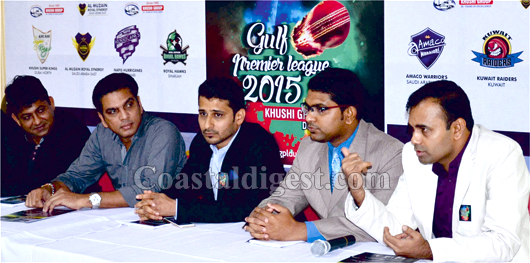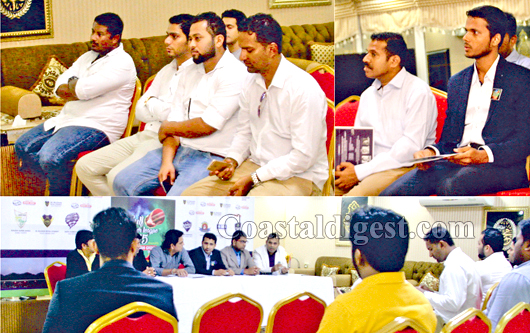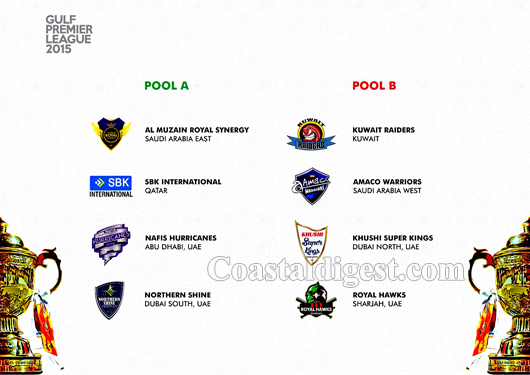Dubai, Sep 6: The ICC Global Cricket Academy ground in Dubai Sports City is all set to host the Gulf Premier League-2015, one of the biggest cricket extravaganza of United Arab Emirates.
The much awaited tournament is scheduled to be held on October 15 and 16. The highlight of the tournament is the presence of star cricketer of all times, Bharath Ratna Sachin Tendulkar during finale.
Bollywood stars Sunil Shetty and Anushka Shetty will also are expected to take part in the event.
The event is powered by Kushi Group, Dubai, in association with Blue & Black Events while Al Muzain Group, Kingdom of Saudi Arabia is the Title Sponsor.
At a press meet held at Majlis of Shaikh Muhammed Sharif, Chairman of Khushi Group, Sadiq Kaup, the President of GPL 2015 announced that for the first time in the history of hard tennis ball cricket format, a huge sum of prize money and attractive gifts will be awarded to the winning teams and individual players.
As many as eight top teams—four from UAE, two from Saudi Arabia and one each from Kuwait and Qatar—will be participating in the tournament which will be held as per ICC rules and regulations.
The 10 over league matches will be played on October 15 and 15 over semi finals and 20 over finals will be played on October 16 from 10 a.m. to 10 p.m.
As it's a high voltage tournament star cricket players from various cricket playing countries are also expected in teams as each team is allowed to include four foreign players.
“Apart from cricket matches, unlimited entertainment programs will be staged as we are accepting around 8000 cricket lovers from across GCC,” said Mr Kaup, adding that the GPL is set to be a bench mark event in the history of hard tennis ball cricket.
He also requested all the cricket fans of GCC to mark their calendars to be part of the event. GPL members Canute Kelarai, Shabir, Imran, Media adviser Balaji Narayan were present during the press meet.









Comments
The below article will provide some basics on hoow to utilize video marketing.
Optimizing a web site primarily requires editing its content material and HTML and
connected coding to both improve its relevance to particular keyy phrases annd to remove
barriers to the indexing activities oof search engines like google.
Talk to them through a problem, the associated emotions, and then relate how the product resolves each of them.
Here is my wensite - Hydravid
Cloud 2.0 Review: http://www.rsms.nl/redir.php?url=https://www.youtube.com/watch?v=V6SHb-…
Add new comment